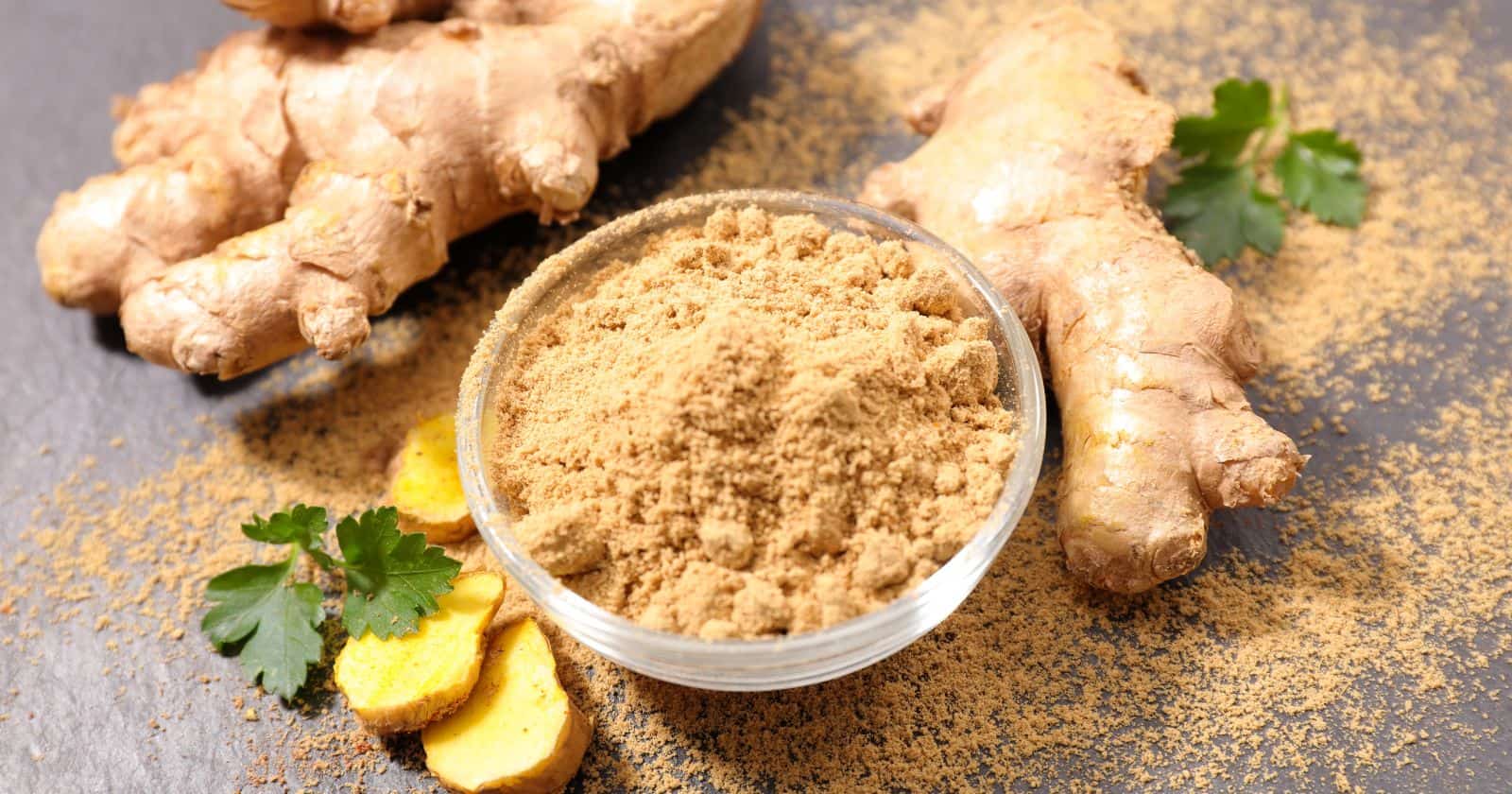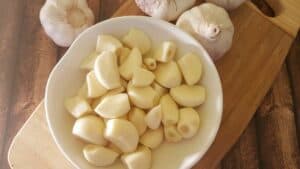Ginger is a magic
But did you know it could also be the all-natural solution for those who suffer from digestive issues? Keep reading to learn more about ginger’s benefits for digestive health.
Ginger has been found to alleviate digestive discomfort, reduce inflammation in the gut, and even improve digestion.
In this article, we’ll dive deeper into how ginger can help combat digestive issues, including how it affects gut bacteria and promotes healthy bowel movements.
We’ll also provide practical tips on incorporating ginger into your diet and suggest a few ginger-based recipes at home. So if you’re ready to bid goodbye to digestive woes and embrace the power of ginger, keep reading!
The Benefits of Ginger for Digestive Health
Are you looking for a natural way to soothe your tummy troubles? Ginger might just be the answer to your digestive woes. This unassuming root has been used for centuries to ease nausea and bloating, but its benefits go beyond that. Here are some of the ways that ginger can aid your digestion:
Stomach Discomfort Relief: Ginger can reduce inflammation and irritation in the lining of the stomach, which helps alleviate symptoms of indigestion and other digestive issues.
Quick Digestion: Ginger speeds up digestion by moving food through the stomach and intestines more efficiently. This can reduce the feeling of fullness and bloating after meals.
Prevent Constipation: Ginger contains compounds that stimulate the digestive tract muscles, helping prevent constipation and promote regular bowel movements.
Gastric Emptying: Ginger can increase the body’s ability to empty food from the stomach more quickly, helping to reduce acid reflux and heartburn symptoms.
How Ginger Affects Gut Bacteria
Ginger has been found to affect gut bacteria by modulating microbiota composition in the intestine. Ginger encourages efficient digestion, so food doesn’t linger as long in the gut.
Studies suggest ginger supplementation can impact obesity, insulin resistance, liver steatosis, and low-grade inflammation.
Animal studies show that ginger may inhibit H.pylori’s stomach infections and reduce gastrointestinal cancers such as the stomach. Ginger has been found to increase the Firmicutes-to-Bacteroidetes ratio and Proteobacteria abundance, which may impact our health.
Ginger has also been found to protect against colonic inflammation by inhibiting the pro-inflammatory cytokines responsible for gut inflammation.
Furthermore, ginger has been found to have an antimicrobial effect on the gut. It has been found to inhibit the growth of harmful bacteria, including Salmonella, Escherichia coli, and Staphylococcus aureus. Moreover, ginger has been found to help increase the production of beneficial probiotics such as Lactobacillus and Bifidobacterium, which can improve gut health.
Promoting Healthy Bowel Movements with Ginger
Ginger is the perfect natural aid to promote healthy bowel movements. With its ability to benefit gastrointestinal motility and encourage efficient digestion, ginger can help prevent constipation from occurring.
It relieves gastrointestinal irritation, stimulates saliva and bile production, and suppresses gastric contractions, which makes it a great digestive aid.
Ginger prevents nausea, vomiting, and abdominal spasms, making it a fantastic solution for various digestive issues. Moreover, it can help you ease gas and cure diarrhea caused by eating contaminated food.
Ginger has been used for centuries to treat digestive issues, and research continues to shed light on its benefits. If you suffer from intestinal hypersensitivity or diarrhea, ginger can help reduce the pain and stool changes you experience.
Studies suggest ginger can affect pain and bowel movements, making it a good relief for those with these conditions.
Incorporating ginger into your diet can support your gut health and promote healthy bowel movements. The critical components of ginger that provide these benefits are gingerols and shogaols. These compounds have anti-inflammatory, anti-spasmodic, and anti-bacterial effects that help ease digestive discomfort.
Gingerols and shogaols can also help reduce bloating and flatulence, which are common symptoms of digestive problems.
Incorporating Ginger into Your Diet
Are you looking for a way to
Here are some tasty and easy ways to incorporate ginger into your diet:
- Ginger Tea: Boil some water and add fresh ginger for a soothing cup of tea. Add honey or lemon for extra flavor!
- Curry and Stir-Fry: Mix some fresh or powdered ginger into your curries or stir-fries for an added zing.
- Breakfast: Add fresh or powdered ginger to your morning coffee or smoothie, or spread ginger jam on your toast.
- Try a New Recipe: Experiment with a new weekly recipe with ginger. There are endless options, from ginger chicken to gingerbread cookies!
- Palate Cleanser: Savor a slice of raw ginger to cleanse your palate before a meal or after spicy food.
- Mince into Stir Fry: Add fresh ginger to stir-fry dishes like broccoli and chicken; just be sure to mince the ginger first for a finer flavor.
- Baking with Ginger: Add fresh or ground ginger to baked goods like muffins or pancakes for a tasty treat with added health benefits.
Delicious Ginger-Based Recipes to Try at Home
Are you looking for a way to add some zest to your meals? Try incorporating fresh ginger root into your cooking! With its unique flavor and health benefits, ginger is a versatile ingredient in various recipes.
From sweet desserts to savory stir-fries, there are plenty of ways to highlight the root in your food.
Check out these delicious ginger-based recipes to try at home:
- Lime & Ginger Drizzle Cake: This zesty cake infuses fresh ginger and a tangy lime glaze. Perfect for a summer dessert!
- Zesty Carrot & Ginger Loaf: This savory loaf is packed with carrots, spices, and fresh ginger. Great for a quick and easy breakfast or snack.
- Stir-Fried Beef with Ginger: This classic Chinese dish features thinly sliced beef stir-fried with fresh ginger, garlic, and vegetables. Serve over rice for an easy and flavorful meal.
- Marinated Tofu with Pak Choi: This vegan dish is bursting with flavor thanks to ginger, soy sauce, and sesame oil marinade. Serve with steamed pak choi for a healthy and satisfying meal.
- Vanilla-Ginger Poached Pears: These delicious poached pears are flavored with fresh ginger and sweet vanilla. Perfect for a fancy dessert or special occasion.
- Turkey Ginger Meatballs: These flavorful meatballs are made with ground turkey, spices, and fresh ginger. Serve over noodles for a comforting and filling dinner.
- Lemon-Ginger Soda: This refreshing drink is made with fresh ginger syrup, lemon juice, and carbonated water. A great alternative to sugary soda!
- Gingery Beet Soup: This healthy soup features beets, carrots, and ginger for a flavorful and nutritious meal. Serve with crusty bread for a hearty lunch.
Precautions When Using Ginger for Digestive Health
Ginger is a natural remedy that can help ease digestive discomfort. While it is generally safe to use, some precautions must be taken to avoid potential side effects.
- High doses of ginger may cause mild heartburn, diarrhea, and mouth irritation. To avoid these side effects, take ginger supplements in capsules or with meals.
- Ginger may slow blood clotting, so it is crucial to exercise caution when taking it with medications that also slow clotting. As a precaution, suspend ginger at least one week before surgery. This can increase the chances of bruising or bleeding.
- It is also essential to avoid using ginger with herbal or health supplements that can interact with it.
In addition to these precautions, there are some things to remember when using ginger for digestive health.
- Ginger has antimicrobial properties that can help to fight off harmful bacteria in the gut. However, it may also reduce the effectiveness of some antibiotics. If you are taking antibiotics, speak to your doctor before using ginger.
- Ginger can also interact with certain medications, including blood pressure and diabetes drugs. Again, check with your doctor to ensure that ginger is safe.
- Pregnant women, children, and people with certain medical conditions should consult their doctor before ginger.
Ginger Substitutes
Are you looking for a ginger substitute for your following recipe? Fortunately, there are several options! Allspice, turmeric, cardamom, cinnamon, nutmeg, or mace can be used as alternatives to ginger.
Other substitutes for fresh ginger include frozen ginger, store-bought frozen ginger, ginger paste or minced ginger, dried ginger, crystallized ginger, pumpkin pie
Galangal, a root often used in Southeast Asian cooking, is one of the most similar substitutes to ginger, but with a fresh citrusy punch. If you’re after the same warmth and spiciness that ginger brings to a dish, try using allspice, cardamom, or cinnamon.
For a subtler and sweeter taste, try nutmeg or mace. With its earthy and slightly bitter flavor, turmeric is also a great substitute, adding a vivid yellow color.
When using substitutes for fresh ginger, consider the form of the reserve. For instance, dried ginger is a concentrated form of ginger, so use only a tiny amount to avoid overpowering the dish.
On the other hand, if you’re cooking with ground ginger or ginger paste, you may need to use more to achieve the same strength of flavor as fresh ginger.
Ultimately, the best ginger substitute will depend on the dish you are making and your taste preference. Feel free to experiment and try different substitutes to see what works best for you. Happy cooking!





